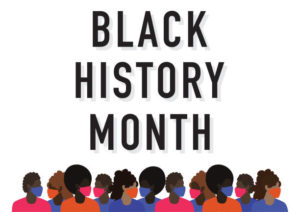
Over the past year, our nation has faced a racial reckoning. We are beginning to acknowledge the role that systemic racism plays in every facet of society, but in order to address the inequities of the present, it is my belief that we also need to acknowledge the past.
“If a race has no history, it has no worthwhile tradition, it becomes a negligible factor in the thought of the world, and it stands in danger of being exterminated.” – I can think of no better way to explain the importance of Black History Month than by using the words of historian Carter Godwin Woodson, who in 1926 launched Negro History Week.
Decades after Woodson created Negro History Week, recognition of Black history and individual accomplishments was woefully insufficient. In the 1960s, 8th Grade history textbooks only mentioned two Black individuals in the chapters that covered the Civil War to then-present day. And so in 1976, Black History Month was made a national commemorative month.
However, looking back at my own education, extending a week-long observance to a month was not enough. My introduction to Black history began with triangular diagrams of the Transatlantic slave trade. Then fast-forward 200 or so years and (after a brief stopover with Harriet Tubman) my curriculum focused on the efforts of Abraham Lincoln, a white man who “freed the slaves.” It would take another 100 years, and the efforts of civil rights icons such as Rosa Parks and Martin Luther King Jr., for my classmates and I to be reintroduced to Black historical figures.
Of course, the education that many of us received did not address racially motivated tragedies such as the 1931 Tulsa Race Massacre, when a mob burned down a thriving Black community and murdered hundreds of its residents, or the more recent 1985 MOVE Bombing, when the City of Philadelphia dropped a bomb on a Black neighborhood, destroying dozens of homes, and killing 6 adults and 5 children.
But maybe even more harmful than ignoring these atrocities, our collective history does not celebrate the contributions of Black individuals to society.
- Lawyer and activist Florynce Kennedy was a central figure in the fight for gay rights, women’s rights, and civil rights in the 20th century. Kennedy staged political protests, organized boycotts against racist hiring practices, and helped to found the National Organization for Women.
- Onesimus, an African man who was enslaved in the Massachusetts colony, introduced Smallpox inoculation practices to his enslaver, Cotton Mather. These practices had been used in Onesimus’ African homeland for centuries and were vital to the creation of future vaccines.
- Gladys West grew up in a sharecropping community in 1930s Virginia. She studied Mathematics in college, despite the field being overwhelmingly populated with white males. After her education, Ms. West’s work with satellite data was instrumental to the creation of GPS.
Local areas must also do a better job of promoting Black history. Here in Philadelphia, institutions highlight the history of White men while ignoring Black individuals who shaped the city.
- Octavius V. Catto was a civil rights activist in 19th century Philadelphia. He raised volunteer regiments of Black soldiers during the Civil War, worked tirelessly to desegregate the city’s trolleys, and after the passage of the 15th Amendment, helped register Black men to vote.
- Born free in 1766, James Forten aided the American Revolutionary effort by serving on a Pennsylvanian privateer ship. After the Revolutionary War, he rose to be one of the wealthiest businessmen in Philadelphia and used his resources and influence to fight for an end to slavery.
- Sadie Tanner Mossell Alexander was born in Philadelphia in 1898. She fought for civil rights and gender equality throughout her life, and among many “firsts” she was the:
-
- First Black woman in the country to earn a Ph.D. in economics
- First Black woman to earn a law degree at Penn
- First Black woman to practice law in Pennsylvania
As we move forWard, we cannot wait for others to educate us. We must broaden our knowledge of Black history, as well as that of the next generation. Whether we use movies or museums, podcasts or books, there are limitless resources to expand our knowledge and introduce our family and friends to Black history. However we choose to do so, our nation cannot achieve equality without recognizing events of the past and celebrating the achievements of history’s brilliant and dedicated individuals.

